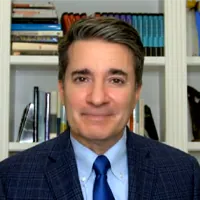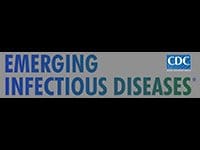JOHN WHYTE: Welcome, everyone. I'm Dr. John Whyte. I'm the chief medical officer at WebMD. Hematology is an area of medicine that's really quite fascinating. It involves genetics, epigenetics, immunology, immunotherapy, infectious disease. And there has been quite a lot of advancement in the past year to treat hematologic conditions.
Joining me to discuss what the clinical landscape has looked like and is going to look like is Dr. Robert Brodsky. He's the president of the American Society of Hematology. Dr. Brodsky, thanks for joining me.
ROBERT BRODSKY: My pleasure. Thanks for having me.
JOHN WHYTE: It has been an exciting couple of years in the field of hematology. I wanted to get your thoughts. What have been the key highlights for you, especially over the past year while you've served as president?
ROBERT BRODSKY: Yeah, as you say, it's a very exciting area for treating hematologic disorders and incredibly fast-paced. I mean, some of the areas that I would highlight – the immunotherapies that you mentioned, areas of CAR T cells and bispecific antibodies – are hugely exciting. Gene therapy is coming into fruition.
But at the same time, there's a yin and a yang with all of these. I mean, we thought CAR T cells was going to be the end-all. And then the bispecifics come in. And they're being challenged. And we don't – certain diseases are going to be more bispecific. Others may be CAR T cell.
Gene therapy might be overshadowed by the enormous advance that's come out in bone marrow transplant. We used to think that most patients with sickle cell disease didn't have a donor. Now, everyone has a donor. So all of a sudden, bone marrow transplant comes back into play. And the gene therapy is not just have to be there, but they have to beat bone marrow transplant. Tough order.
JOHN WHYTE: Yeah. And it's all about precision therapy and personalized medicine. But at the same time, you really have labeled off all these advances that have occurred and are occurring. How do doctors keep up?
I mentioned, you're the president of American Society of Hematology. How do you continue to educate people about this? There's national meetings, but at the same time, those occur only a couple of times a year. How do we educate folks to make sure that they're up to date on the latest information?
ROBERT BRODSKY: Yeah. It's getting harder and harder to stay up to date in a wide area. And I think one of the things that you're seeing in hematology – when we were going through training, everyone said, hem/onc like peanut butter and jelly.
I don't think you're going to see that anymore. I mean, one of the things that ASH has done is start these hematology-focused fellowship training programs, where people are just training in hematology, both benign and malignant or what we call classical hematology and malignant hematology. And focusing on that.
It's very hard to stay up to date on everything in hematology and everything in oncology. And I don't think the oncologists can do it anymore either. So I think there's going to have to be some focus in there. And even within hematology, you see people focusing more on classical hematology versus malignant hematology.
ASH has played a big role in education. They are coming out with guidelines. They come out with webinars. ASH-SAP, or self-assessment program, has been a really big means for people to stay up to date on things. But as you say, it's a challenge.
JOHN WHYTE: You mentioned hematology/oncology. When we think about oncology, blood cancers – 10% of cancers, but someone's diagnosed every 3 minutes. Someone dies every 9 minutes of a blood cancer. A lot of the discussion lately has been around community oncology, academic oncology. How do they keep up in terms of making sure that they're giving the best therapies at the right time based on the tumor types?
ROBERT BRODSKY: Yeah, and I think you're seeing some sub-specialization there, even in the community practices for exactly the reasons you're mentioning. And it's very hard to stay current. We're very fortunate in some of our academic medical centers. You have a lymphoma conference. And you have a myeloid disorders conference. And you have coag conference. And you can go to that.
Doing that in the community is really hard. If it's a small practice, you may have two or three people to run stuff by. And even in some of the larger practices, it's hard to find that specialized expertise. Again, I think people are going to have to have a little bit narrower of a practice in many areas. But I realize, at the same time, that in certain communities, you're just not going to have that available.
JOHN WHYTE: Yeah, how will we help there? Will it be through virtual consultation?
ROBERT BRODSKY: Yeah.
JOHN WHYTE: Will it be AI? Everyone's talking about AI. I'd be remiss if I don't ask you about what's the role of AI in hematology as well as oncology, Dr. Brodsky.
ROBERT BRODSKY: Well, AI’s certainly going to play an increasing role in assisting, and with diagnoses, and possibly for treatments. I don't think you're going to see a huge difference over the next couple of years. But I think you're going to see, over the next decade, more and more AI come into play with diagnosis of blood smears, and bone marrows, and interpreting scans, and prediction models. So it's going to play a role. It's here. We haven't figured out how to use it well yet, but that's going to come.
JOHN WHYTE: What about burnout? Everyone's also talking about that. It's in the academic centers. It's certainly in the community. You talked about all that they have to accomplish with fewer resources sometimes. Are we making progress, or some argue it's getting worse?
ROBERT BRODSKY: I think it's getting worse. There are so many causes now of burnout. One of the biggest causes of burnout is this whole RVU system. You're rewarded for speed, not quality.
I think the law firms went through this as well. I mean, you had a situation where if you spent 14 to 16 hours a day working and billing, even though someone else in the law firm was doing the same amount of work in 7 to 8 hours, who made partner? The inefficient person.
And we have a situation now with these RVUs. They set up a lot of perverse incentives. People want to see stuff that's simple. It's a quick visit. There's not going to be a follow-up phone call. There's not going to be – you're not going to have to call a super sub-specialist to get advice on how to treat it.
The other thing is that it's gumming up the system because people are bringing – and not all people, but a lot of physicians – are bringing people back more than they need to be seen to generate bills because there is so much pressure to keep your clinic full and keep your volume up.
I think it's really having an adverse effect on medicine and also burnout. The hospital administrators all look at this. And now, many of our hospital administrators, and I'm talking about our MD hospital administrators, are no longer in the game. And they are very out of touch. So heads of cancer centers, heads of medicine, very seldom do you see them where they're still seeing patients and writing grants. They're full-time administrators now. And I think that's hurt.
There's enormous amounts of time on the computer. The electronic medical record is super slow. It slows us down. You're having to get prior authorizations more and more because of the expensive drugs coming out. So to renew your DEA, you have to take an 8-hour – you have to watch an 8-hour video.
The ABIM is sending you questions every 3 months and giving you 4 minutes to answer them or you lose your certification. It's amazing the pressure that is on these physicians. And we have to do something to reduce the burnout.
JOHN WHYTE: You're coming to the end of your term as the ASH president. What's been the highlight of your year?
ROBERT BRODSKY: Wow. It's been a fun year. It's a lot of work, but it really has been a lot of fun. I think the highlight is getting to know so many of the things that ASH does, not just beyond – not just related to the meeting or the journals, but what it does globally. Going around the country, really going around the world this year and meeting so many of our ASH members has been highly rewarding.
I think our hematology-focused fellowship program is very exciting to me. I think there's a huge workforce shortage of hematologists that deal with classical hematology. I think ASH is addressing that. I think we're making amazing progress with the ABIM right now and the maintenance of certification. We've heard from our members that that is a big source of burnout and discontent. And I think we're getting close to fixing this.
JOHN WHYTE: What's next for you?
ROBERT BRODSKY: Well, I'd be lying if I didn't tell you that I'm looking forward to going back to having a little more time to focus on what I do, my day job, which is patient care, laboratory research, and some teaching as well. So I'm looking forward to that. I'm sure I will continue to stay engaged with ASH on certain areas that we haven't – we've started but we haven't finished. Mentioned a couple of them – the ABIM, the fellowship training programs.
I think getting back to one of the highlights is to see how ASH came through this pandemic, in many ways, stronger. It's just amazed me. We are going to have 30,000 people in San Diego in December at our meeting in-person. We're going to have another 5,000 or 6,000 virtual.
So to be able to go through the challenges that presented, and to come out, and use the things that – to make it better for people around the world, I think was really amazing. The other highlights – ASH is launching several new journals that I think are going to be very exciting journals that are going to be very high quality.
And the field is growing so fast that there is really a need. I mean, our two flagship journals, Blood and Blood Advances, are having to turn away a lot of really high-quality research to some of our competitors. So we'll have an ASH home for a lot of these journals. So there's just a lot of excitement that's been going on.
JOHN WHYTE: Well, we'll be looking forward to following up on that. Dr. Robert Brodsky, thanks for taking the time today.
ROBERT BRODSKY: Thank you.
This interview originally appeared on WebMD on December 1, 2023
Follow Medscape on Facebook, X (formerly known as Twitter), Instagram, and YouTube
Webmd © 2023 WebMD, LLC
Any views expressed above are the author's own and do not necessarily reflect the views of WebMD or Medscape.
Cite this: ASH President Reflects Before Annual Meeting on Hematology - Medscape - Dec 04, 2023.














Comments